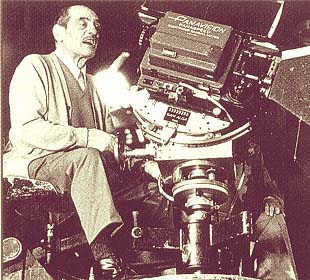Mar
11
Posted by: Brian | March 11, 2009 | Comments Off on
In response to Miguel:
When the prostitute was insisting that the men pay her, I was confused by the woman, brushing her hair. She and the protagonist were exchanging suggestive looks or rather, looks of empathy and compassion. Yet on hearing the other prostitute in the neighboring room, the protagonist seemed to revert back to his old ways, demanding that him and the other men leave without paying. I thought this was where the men would redeem themselves and their ways. Instead, they left to reclaim their Mexican friend. This seemd to initially convey the kinship they had with the other male, aside from cultural differences, but of course this interaction turned to turmoil. I think it is interesting that of all the men in the group, the Mexican of course was claimed a traitor. Therefore, this film shows the feelings perhaps Mexico and the U.S. felt for one another? On the other hand, I would like to believe this was suppose to be a parody on a bad western film.
In response to Mario:
I did not originally think of the protagonists as anti-heros. But once you pointed out the fact that the men start fighting with the knowledge that they will die, like the anti-hero, the mens’ deaths are inevitable and therefore they decide to control the way they are going to die. It made me think of Beowulf, and how he has several battles with monsters, in which he is successful at conquering, but with each encounter the battle becomes more of a challenge. The dying culture of Beowulf is like the dying culture of the Western.
